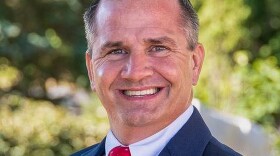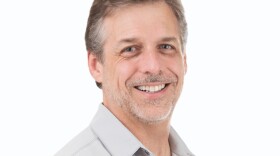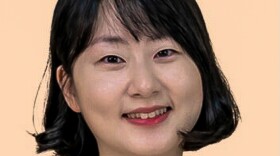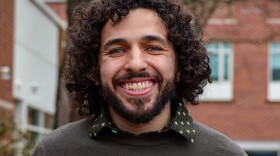
Lindsey Whissel Fenton
Senior Producer/Director and Instructional DesignerLindsey Whissel Fenton, MEd, CT (she/her) is an Emmy award-winning filmmaker, international speaker, and grief educator. In her current role as a senior producer/director and instructional designer at PBS/NPR affiliate WPSU, Lindsey focuses on projects related to grief, trauma, and mental health. She is the creator of Speaking Grief and Learning Grief, founder of Empathic Media, and serves on the Board of Directors for the National Alliance for Children's Grief (NACG). She’s also an instructional designer and content creator for the Yale Child Study Center’s Grief-Sensitive Healthcare Project. Lindsey earned her bachelor’s degree in Cinema and Digital Arts from Point Park University, her master’s degree in Learning, Design, and Technology from Penn State, and is Certified in Thanatology through the Association for Death Education and Counseling (ADEC). She’s a dog mom, avid reader, and rock climber.
-
From piles of unopened mail to digital subscriptions you forgot you were paying for, financial clutter can quietly drain your wallet and your mental energy. In this episode of 12 Degrees, Lindsey Whissel Fenton talks with Julie Heaton, director of the Penn State Sokolov-Miller Family Financial and Life Skills Center, to talk about how tidying up your financial life can bring relief, clarity, and even cash back in your pocket.
-
Our work shapes so much of who we are, which is why our relationship to it matters for our overall wellness. In this episode of 12 Degrees, Dr. Jessica Henry, a teaching professor in Penn State’s College of Education and licensed mental health counselor, joins host Lindsey Whissel Fenton to talk about what it really means to be “career well.” Dr. Jess shares her framework for the Six P’s of Career Wellness and how they can help us find fulfillment at any stage of our professional journey.
-
Digital wellness isn’t just about screen time or blue light glasses, it’s about how we show up online, keep ourselves safe, and treat others with respect. In this episode of 12 Degrees, Lindsey Whissel Fenton talks with Joseph Squillace, an associate teaching professor of cybersecurity at Penn State, about a groundbreaking project that uses virtual reality to let students safely experience bullying scenarios and practice how to respond. They also discuss why kids and teens bully, how schools and communities can support both targets and perpetrators, and what caring adults can do to create safer, healthier online spaces for the young people in their lives.
-
You don’t need incense, chanting, or a passport stamp to tap into something sacred. In this episode, 12 Degrees' Lindsey Whissel Fenton talks with somatic therapist, ritualist, and Penn State faculty member Elisha Tichelle about practical, embodied ways to tap into meaning, connection, and creativity—without the fluff. From heart coherence to moon cycles to the underrated power of fuzzy socks, we explore how small, intentional rituals can support your nervous system, ignite your intuition, and bring a little sacredness to your everyday life. Whether you’re ritual-curious or spiritually skeptical, this one’s for you!
-
It can be difficult to find time for service, but what if there was something you could do from your own backyard that had the potential to change the world? In this episode of 12 Degrees, Lindsey Whissel Fenton talks with Connie Schmotzer, coordinator of Penn State’s Pollinator Habitat Certification Program, about how caring for pollinators can be a simple, flexible way to give back. Connie explains how small choices like planting native flowers, rethinking pesticides, or even setting out a few logs can create ripple effects that strengthen ecosystems, food systems, and community well-being.
-
What if your strongest source of support was right outside your back door? In this episode of 12 Degrees, Lindsey Whissel Fenton talks with Penn State researcher Dr. Erica Husser about how everyday connections to nature shape identity, resilience, and emotional well-being. Drawing on Erica’s research interviews with older rural women, they explore nature as a quiet but powerful wellness tool. They also discuss the broader impacts of climate change on health, housing, and community care and why nurturing our relationship with the natural world is more urgent than ever.
-
Could better sex mean a better memory? In this episode of 12 Degrees, Lindsey Whissel Fenton talks with Dr. Marty Sliwinski, director of the Center for Healthy Aging at Penn State, about surprising research that links sexual satisfaction, heart health, and cognitive sharpness as we get older. They unpack what’s really happening behind the sheets — and why connection, conversation, and even hearing aids matter just as much as puzzles and leafy greens when it comes to keeping our brains fit for life.
-
We know that stress takes a toll, but what happens when we face it alone? In this episode of 12 Degrees, host Lindsey Whissel Fenton talks with Dr. Jee eun Kang, a Penn State researcher whose work explores the connection between loneliness, emotional resilience, and long-term health. Dr. Kang shares insights from her research on how loneliness can extend the impact of everyday stress and offers practical ways to support emotional recovery—for ourselves and others.
-
Is AI here to take over our creativity…or help us grow it? In this episode of 12 Degrees, Lindsey Whissel Fenton talks with Penn State researcher Paul DiStefano about what human–AI collaborations really mean for our creative wellness. They explore why true creativity is more than just generating ideas, how our expertise keeps the human spark alive, and how we can keep our creativity healthy and resilient in the age of AI.
-
What we say to ourselves can shape how we handle stress, setbacks, and everyday life. In this episode of 12 Degrees, Dr. Christina Lightner joins Lindsey Whissel Fenton to talk about MINDSTRONG, an evidence-based program developed at Penn State’s Ross and Carol Nese College of Nursing. From reframing negative thoughts to practicing emotional regulation, learn simple strategies that support long-term resilience and wellness—both inside and outside of healthcare.











